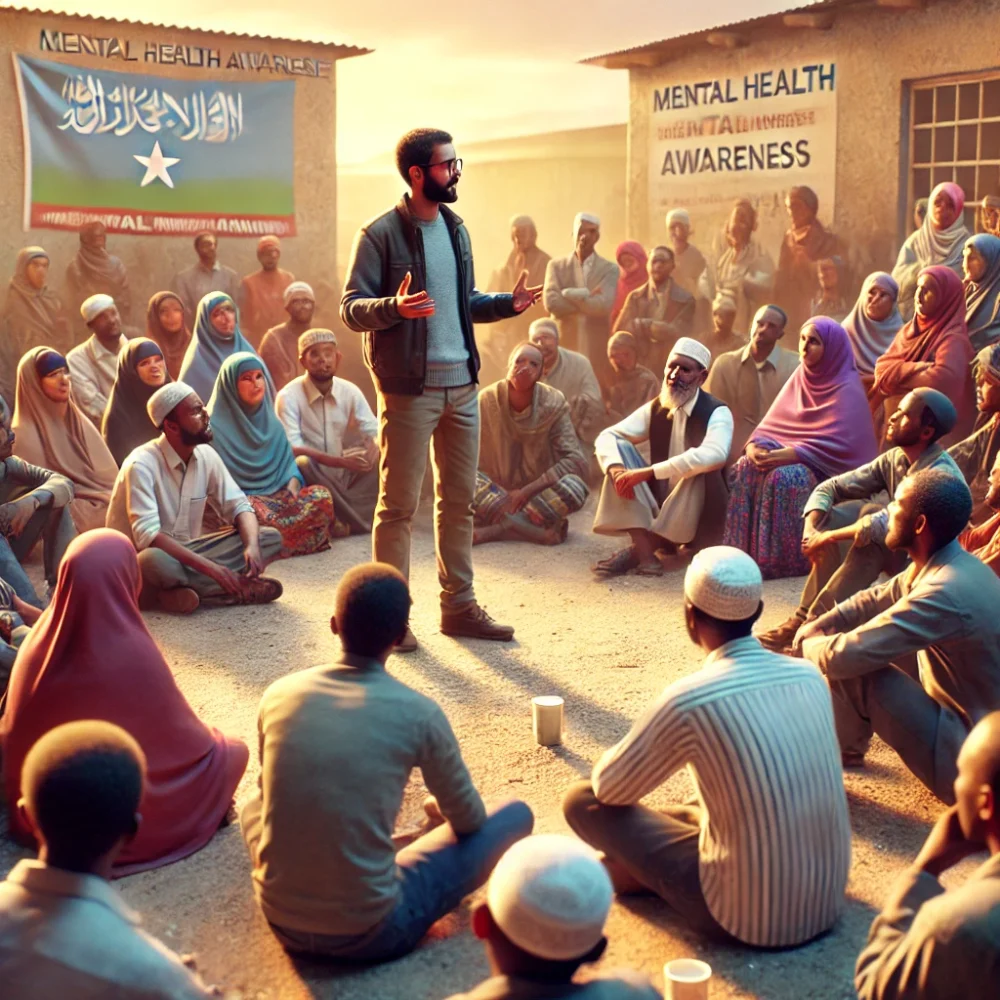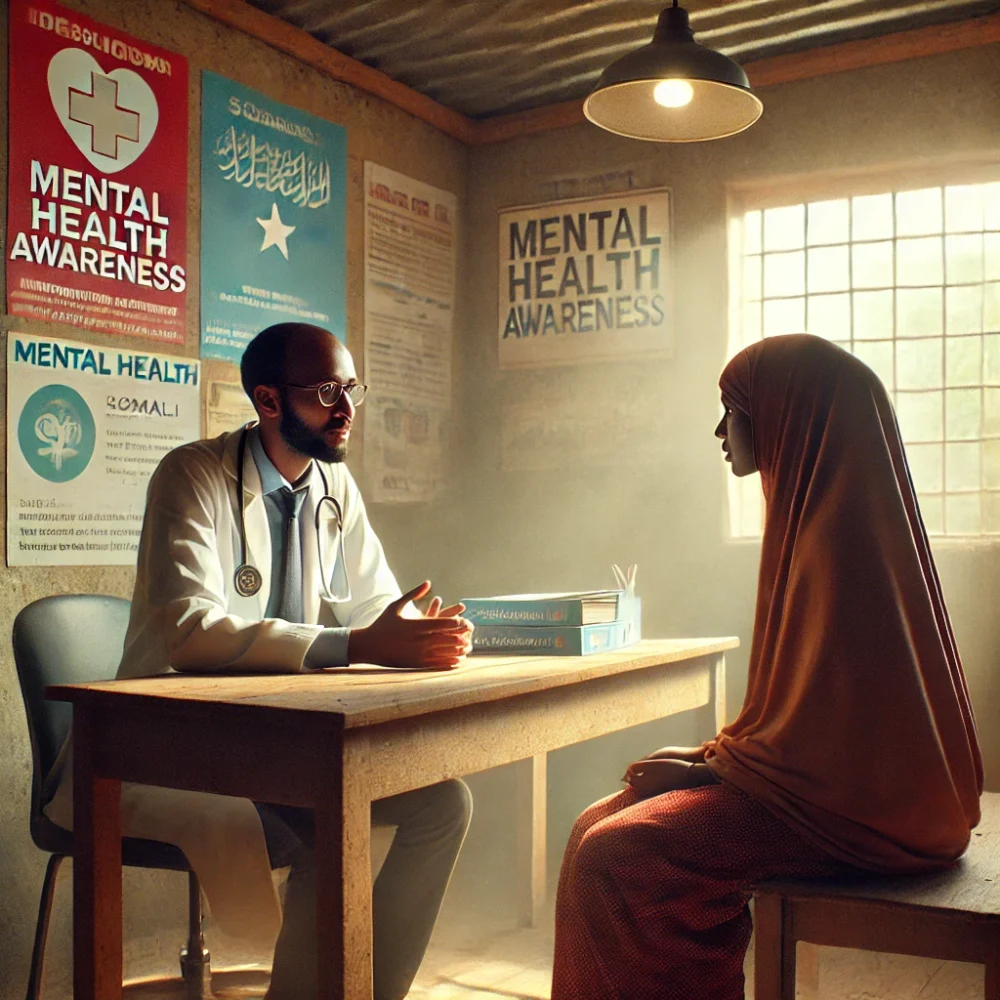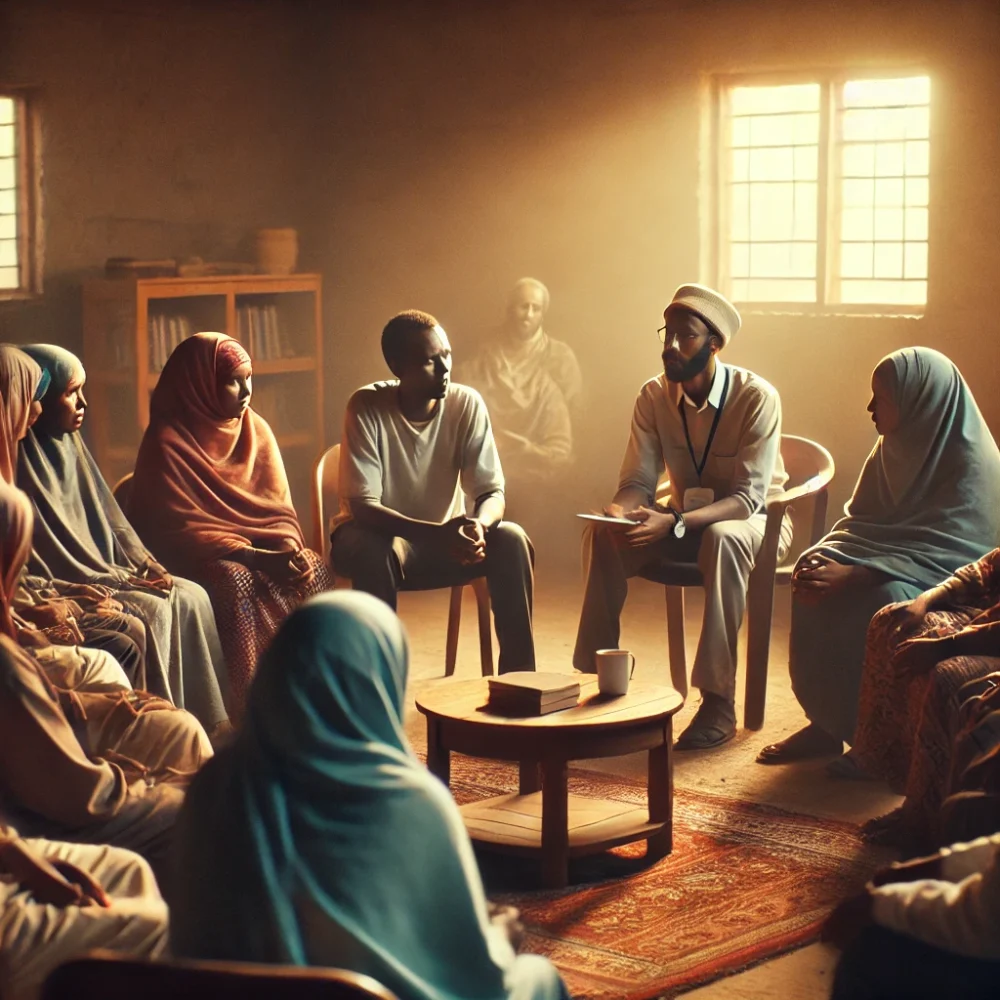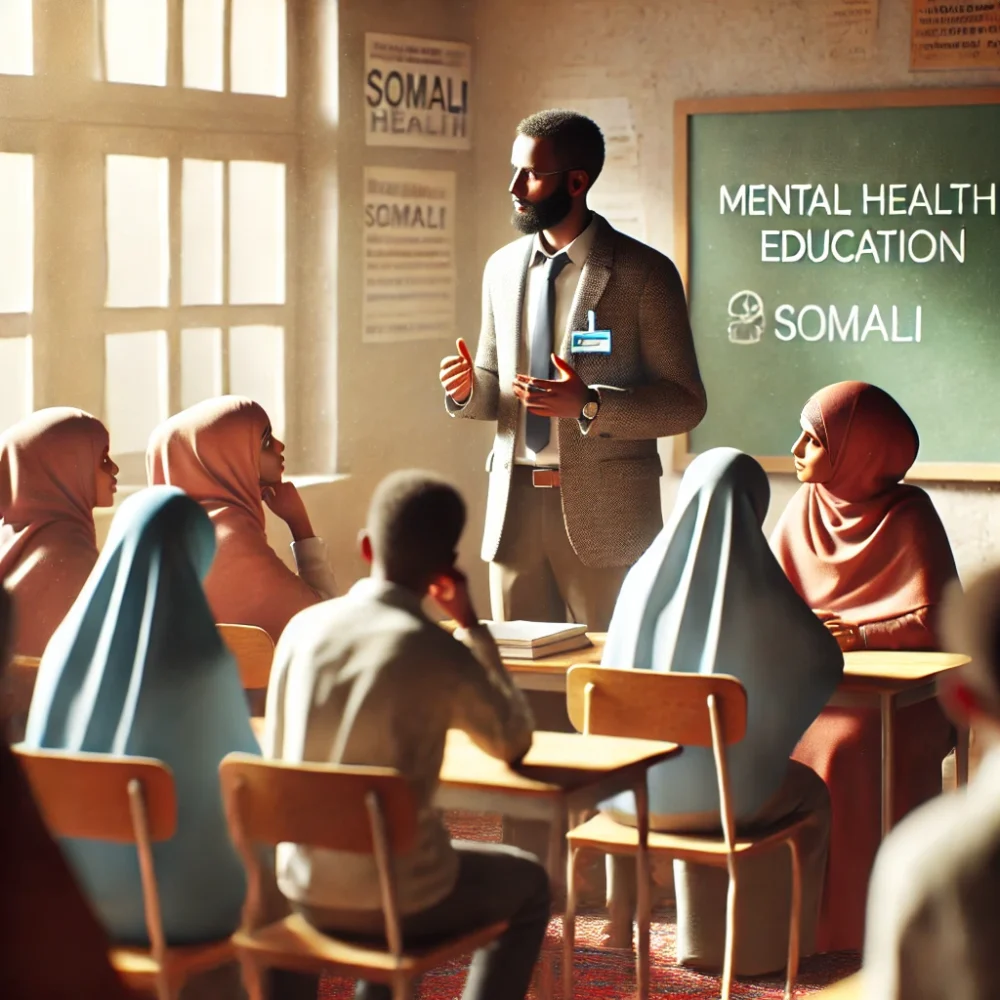Introduction
Mental health has long been a neglected issue in Somalia due to stigma, lack of resources, and cultural barriers. With an estimated one in three Somalis experiencing mental health disorders—a rate significantly higher than the global average—the need for mental health awareness and support has never been greater.
However, traditional healthcare structures have struggled to provide adequate services. In response, community-led initiatives have emerged as a powerful force in bridging the gap, educating the public, and improving access to care. This case study explores how grassroots efforts have transformed mental health awareness in Somalia, leading to increased acceptance and better support for those in need.
The Mental Health Crisis in Somalia
Somalia has faced decades of conflict, displacement, and economic instability, all of which have contributed to a mental health crisis. According to the World Health Organization (WHO):
-
Over 35% of Somalis suffer from some form of mental illness, a rate exacerbated by trauma and war.
-
There is only one psychiatrist per 2 million people, making professional care extremely limited.
-
Traditional beliefs often associate mental illness with supernatural causes, leading many to seek religious or spiritual healing rather than medical treatment.
Despite these challenges, community-driven initiatives have made a significant impact in raising awareness and reducing stigma.
How Community-Led Initiatives Are Changing the Narrative
1. Mental Health Education Campaigns
Grassroots organizations have launched public awareness campaigns to educate people on mental health conditions, their causes, and available treatments. These efforts have included:
-
Radio and TV programs discussing mental health in local languages, reaching over 500,000 listeners nationwide.
-
Workshops in schools and mosques to help community leaders understand the science behind mental illnesses.
-
Social media campaigns, which have engaged over 1 million people with informative content.
2. Training Traditional Healers and Religious Leaders
Since many Somalis turn to traditional healers and religious leaders for support, mental health advocates have trained these figures to recognize symptoms of mental illness and refer individuals to professional care when needed.
-
In Mogadishu and Hargeisa, over 200 religious leaders have undergone mental health training.
-
This has led to a 40% increase in individuals seeking medical treatment instead of spiritual-only interventions.
3. Community Support Groups
Support groups have provided a safe space for individuals struggling with mental health conditions. These groups focus on:
-
Peer counseling, reducing feelings of isolation.
-
Caregiver education, equipping families with tools to support loved ones.
-
Skill-building workshops, helping individuals reintegrate into society through employment.
In one pilot program, participants reported a 60% improvement in their ability to manage stress and anxiety after six months of group support.
4. Mobile Mental Health Clinics
With only a handful of mental health facilities in the country, mobile clinics have played a crucial role in bringing services to remote areas. These clinics, operated by NGOs and community health workers, have:
-
Provided mental health screenings to over 10,000 individuals in underserved regions.
-
Offered free counseling and medication for conditions like depression and PTSD.
-
Referred severe cases to the few psychiatric facilities available.
Impact and Future Outlook
Thanks to these initiatives, mental health awareness has improved significantly in Somalia:
-
Public perception of mental illness has shifted, with more people recognizing it as a medical condition rather than a supernatural issue.
-
Seeking professional help has increased by 50%, according to surveys conducted in major cities.
-
Policy changes are underway, with the government drafting its first national mental health strategy.
While challenges remain—such as funding shortages and the need for more professionals—these community-led efforts have laid the foundation for a more inclusive and informed society.
Conclusion
The success of mental health initiatives in Somalia highlights the power of community-driven solutions. By engaging local leaders, utilizing traditional networks, and making mental health education accessible, Somalia is gradually breaking the stigma surrounding mental illness.
As awareness continues to grow, the hope is that more resources will be allocated to mental health care, ensuring that every Somali has access to the support they need.
Would you like this formatted for a website or report? Let me know if you need any refinements!





